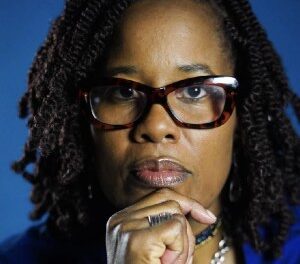By Crystal Mullen-Johnson
I was born into a generation of strong, educated Black women.
The women in my family value education, family, relationships, and spirituality. My maternal grandmother, Mary (Tee) was an educator and the backbone of our family. Her voice demanded attention and respect.
Like my grandmother, the women in my family juggled many roles such as parenting, community activist, nurturers, and caretakers; they were hard-working women. They supported and elevated each other. My mother and grandmother had a close relationship; we would visit her every day. They were both members of the Debonnaires social club in Demopolis which provided them an outlet to discuss social issues impacting the community. I enjoyed being in their presence and listening to them discuss women issues. I aspired to be just like them; strong, outgoing and educated. They created a community to connect emotionally and feel a sense of security and belonging.
Black women and girls need safe spaces to discuss their emotions instead of suppressing and minimizing them. Some of us pretend to be “ok” when we’re emotionally distressed. It’s not uncommon for us to always be “on the go” and taking care of others’ needs while neglecting our own mental and physical needs.
Some Black women struggle with self-acceptance because of what society defines as beauty. Women/girls with low-self-esteem who struggle with negative comparison behaviors may cause Black women/girls to develop mental health conditions and lead them to suicidal thoughts.
It’s more common for Black women between the ages of 25 and 44 to experience depression, but it can occur at any age. Know the signs and symptoms of depression and seek help if you are having suicidal thoughts.
There was a time when it was unheard of for Black women to take their own lives; sadly, we are now seeing an uptick of suicide(s) in this demographic. It was utterly shocking to learn about former Miss USA Cheslie Kryst’s suicide at age 30. She was beautiful, intelligent, and polished, right? From the outside looking in, the women who are taking their own lives appear to have it all together.
Mental illness does not discriminate. Some Black women are unlikely to receive counseling because of mental health stigmas. It’s okay to talk to a therapist – and you have the option to speak to a therapist of color if that’s your preference.
I empower you to adopt a healthier approach to living by growing in self-love, self-forgiveness, and self-acceptance. Allow yourself to receive support, have a positive support group, practice self-care, ask for help, and focus on your mental well-being.
Identify healthy coping skills to manage your mental health. Remember, being strong can also be a weakness if you are suffering in silence. We also must create spaces for young black girls to discuss emotions and develop resilience. During Women’s History Month, I encourage you to allow others to support you and to champion your mental health.
Michelle Obama reminds us that we need to do a better job of putting ourselves high on our own “to do’ list.”
Crystal Mullen-Johnson is an author, a licensed clinical social worker and a registered play therapist in Birmingham, AL. Mullen-Johnson has more than sixteen years of experience in providing counseling services. She is the owner and founder of Strive Counseling Services, LLC, a private practice located in downtown Birmingham that offers therapeutic mental health services to children (play therapy), adolescents, and adults. Strive offers evidence-based therapeutic modalities such as Cognitive Behavioral Therapy (CBT). Contact Strive Counseling Services at (205)721-9893 to inquire about Telehealth Services or visit the website, www.strivebhm.com.
Crystal is also the Founder and President of Nurture, LLC, a non-profit organization in Birmingham, AL serving as a resource for the underserved socioeconomic groups in the Birmingham community. Learn more about Nurture by visiting the website, www.nurturebham.com











